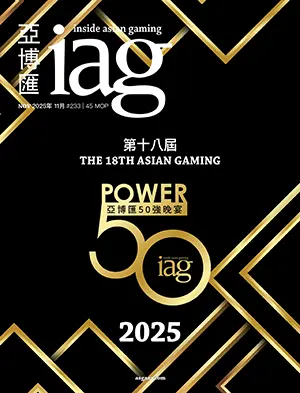China’s booming casino enclave is being slammed by negative headlines. But are the issues behind them overblown?
Reports of Macau’s demise have been greatly exaggerated.
Recent headlines about a UnionPay cash crackdown, junket misdeeds and transit visa abuses are unlikely to have significant impact on gaming revenue, according to industry executives and analysts attending last month’s Global Gaming Expo Asia (G2E Asia). The string of bad news doesn’t alter the fundamental story of Macau’s success, they asserted, as visitors from China arrive in greater numbers and spend more, sending mass-market gaming growth rocketing ahead of VIP and accounting for an ever greater percentage of casino profits.
“Everyone is looking under a microscope at Macau to show that it isn’t as good as it is,” MGM China Chief Executive Officer Grant Bowie told a G2E Asia audience. “Macau and China’s governments will have policy changes from time to time, but they won’t fundamentally change the market. It’s not in anyone’s interest to do that.” Seated alongside him was Wynn Macau President Gamal Aziz, who said, “Macau’s story is one of the greatest stories in our industry, and we need to focus on that. We have an industry that is thriving and will continue to thrive, and there is nothing on the horizon that will change that.”
“There are no negative political factors from Beijing,” added Kelvin Tan, executive vice president and chief of international marketing for Melco Crown Entertainment.
Yet one consultant who asked not to be named shrugged about “people who want to keep their heads in the sand” regarding troublesome headlines and the issues. Even optimists caution that current negative news stories could pose threats, if the headlines represent the tip of larger policy-change icebergs, though they consider such developments unlikely. To be sure, Macau does have issues that need to be resolved, but executives are confident the market will remain successful in the face of these challenges.
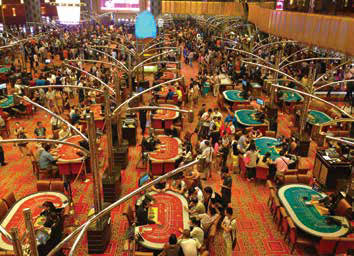
Nevertheless, share values for Macau’s six Hong Kong-listed casino operators are off their 52-week highs by 20% or more, as of this writing.
“The reality is that investor sentiment is bad right now, and the rumor mill is working overtime, which combined has spelled bad news for shares of Macau’s gaming companies,” says Grant Govertsen of investment brokerage Union Gaming Research Macau.
“As a market, Macau is exceptional and unprecedented, and this makes it more difficult for the international investment community to understand and feel comfortable,” says fund manager Matthew Ossolinski, chairman of Ossolinski Holdings. “For the past several years, there has been a disconnect between the short-term price movements of the Macau casino stocks and what is actually happening on the ground in Macau.”
Macau’s Gaming Inspection and Coordination Bureau reported gross gaming revenue for May of MOP32.35 billion (US$4.04 billion), a 9.3% increase over May 2013. It was the fifth-best revenue month in Macau’s history. GGR through the first five months of 2014 is up 15.8% over the same period last year. But the increase was also the second lowest this year, behind January’s 7%, and it failed to hit the median estimate of 14.5% from seven analysts surveyed by Bloomberg News, and the immediate effect was to send Galaxy Entertainment 0027) down 3.1%; SJM Holdings (0880) down 3.2%; Sands China (1928) down 1.4%; and Wynn Macau (1128) down 1.2%. As of this writing, the shares of all six operators are down an average of 11% in 2014, compared with a 1.5% decline in the HKSE’s benchmark Hang Seng index.
In recent weeks, ahead of the May numbers, the declines in operators’ share prices have been accompanied by a series of negative news reports. Last month, it was reported that China’s state-owned UnionPay was cracking down on a proliferation in Macau of illegal handheld devices that allow mainland gamblers to swipe the popular payment card for cash and evade the government’s stringent limits on yuan flows out of the country. The devices were even reported to be in use on casino floors. The Macau government says the problem has been exaggerated, but it has announced, in somewhat sketchy terms, that the casinos have been ordered to see the devices are removed.
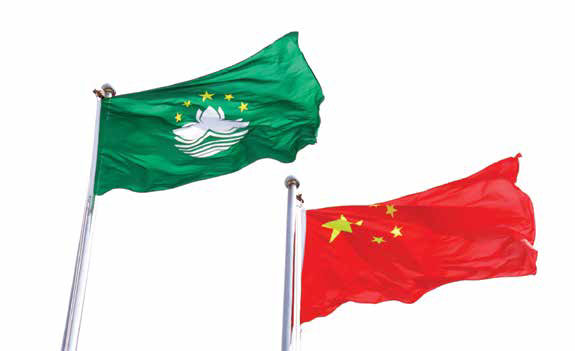
Analysts and executives believe that authorities are simply targeting UnionPay abuses rather than aiming to restrict use of the mainland-issued bank card, which enables visitors to get cash and make purchases in Macau. “If they’re just focused on illegal terminals it’s a small thing,” Standard Chartered analyst Philip Tulk said at G2E Asia. “If it’s a shot across the bow for something bigger, then it could have an impact.”
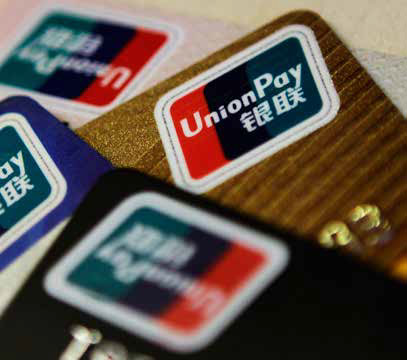
Transactions barred from the casino floor will simply migrate to pawn shops or other venues, observers have said. “We see limited impact on the premium-mass segment, as we expect gamblers to use alternative methods to get cash,” Morgan Stanley Asia Pacific analyst Praveen Choudhary wrote in a May report. However, like Mr Tulk, he cautions that broader action against UnionPay could have a major impact on gaming revenue. Mr Choudhary estimates a potential 64% drop in mass table revenue from wider UnionPay restrictions. Mr Tulk calculates a worst-case crackdown could impact EBITDA (earnings before interest, taxes, depreciation and amortization) by one-third. But that worst-case remains unlikely, in his view, and he maintains an “outperform” rating on the shares of five of the six operators.
PLENTY OF SMOKE, LITTLE FIRE
Adding to the UnionPay news was an exposé by China state broadcaster CCTV on mainlanders who extend their visits to Macau by obtaining visas for travel to other countries but never actually go to those countries. It’s estimated that up to 11% of mainland arrivals last year were a result of such abuses. Officials say they will make unspecified changes to the transit visa regime effective 1st of July.
“They’re closing a loophole,” Mr Tulk says, noting that any changes will affect a small number of visitors. “Some people can find alternate ways to visit or will spend more when they do come.”
Transit visa travelers to Macau may, for example, simply follow through with a day trip to a nearby destination such as Hanoi or Manila and return to Macau to spend the additional days allotted upon their return. But if stays in Macau are cut to two or three days under the system, as some predict, Mr Choudhary, for one, says it could impact VIP players, who often stay in Macau for three or four days. He suggests that junkets also use transit visas to bring their personnel to Macau to service clients. Changes to the system could raise junkets’ business costs.
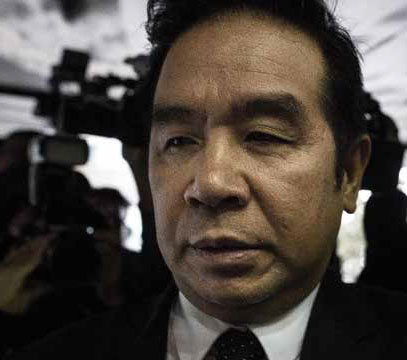
The VIP trade has featured in some negative headlines dating back to the March conviction in Hong Kong of sportsman and junket investor Carson Yeung for money laundering. Not long after that, Hong Kong police detained the wife of an owner of Neptune Group, one of the three largest junket operators in Macau. She was reported to be carrying HK$200 million (US$25.7 million) in cash when she was arrested, and articles said her detention was part of a wider investigation into junkets and money laundering by mainland officials.
Then came the news that an agent for a relatively obscure junket, Kimren, had disappeared with an estimated HK$8 billion-$10 billion from the company. Subsequent reports said the missing funds were from side-betting pools, the wagers that are not counted in official tallies and are believed to be vast. The incident fits into wider concerns about a slowdown in credit expansion in China, which could threaten junket liquidity, and slowing VIP revenue growth.
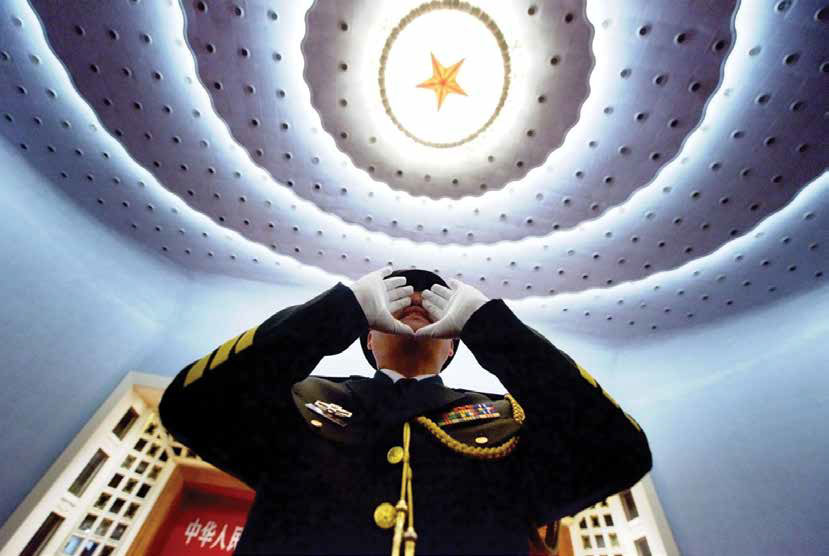
Mr Choudhary notes that funds for side-betting and official table play come from the same sources of capital and so the Kimren incident could “meaningfully” affect overall junket liquidity. He also believes it may lead investors to shift from small junkets to larger ones, accelerating ongoing consolidation in the sector. He forecast VIP revenue for the remainder of 2014 at minus 5% to plus 5%, following a 9.5% increase through the first quarter. However, with mass-market revenue growth remaining above 30%, he expects little impact on the market overall.
In Mr Tulk’s analysis of GGR and EBITDA impact at various levels of VIP growth for the rest of the year, a situation of zero VIP revenue growth coupled with mass-market growth of 29.9% (down from 35.2% in the first quarter) will result in total GGR growth of 7.6% year on year for the remaining three quarters and up to 10.5% for 2014 overall. EBITDA, without any VIP growth for the final three quarters, would rise by 19.9%. Using those assumptions, a 5% contraction in VIP over the final three quarters would generate EBITDA growth of 18.4%.
Analysts agree that VIP revenue will continue to slow from the 38.6% increase recorded during Macau’s record breaking February.
“Xi Jinping’s anti-corruption crackdowns are seemingly lasting longer and are more pervasive than any previous anti-corruption crackdowns seen when previous leaders took the reins of power,” Union Gaming’s Mr Govertsen observes. “While there doesn’t seem to be any specific focus on Macau, I think that this could be serving to place a bit of a cap on VIP gaming going forward as junkets and wealthy customers alike are cognizant of what’s going on in China.”
Mr Choudhary warns there are two less-discussed issues that could impact Macau’s revenue and earnings. One is the complete casino main floor smoking ban announced by Macau’s government on 15th May. Set to take effect on 6th October, the regulation calls for replacing the current mix of smoking and non-smoking areas with airport style smoking areas with no gaming tables or machines, while maintaining smoking in VIP areas. Casino operators themselves have suggested this approach as an improvement over the split-floor system currently in operation, which is criticized by gaming workers and continues to produce findings of poor indoor air quality. However, some small casinos have indicated that they may not have space for smoking areas.
The smoking ban was among the top three concerns for US and Asian investors in Morgan Stanley surveys of each group conducted last month. Mr Choudhary suggests gaming revenue could drop 5-15% in the first year—based on the initial results of smoking bans in the US, UK and Australia—although it’s expected to recover. He also expects the near-term impact in Macau to be less severe than in other markets because of “strong demand and limited alternatives”.
Finally, there’s the looming labor shortage, a far bigger and less tractable problem. Gaming executives cite labor retention and attraction as their top concern in a widely reported survey by US insurance broker and risk management consultant Marsh LLC.
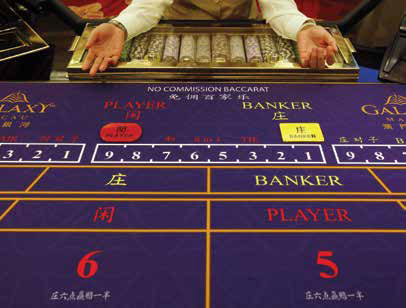
Mr Choudhary estimates the next phase of Cotai expansion will require 32,000 gaming and hotel employees over and above the current labor force of 85,000. With Macau’s unemployment running at 1.7% and a small pool of higher-education graduates joining the labor force every year, and with croupier positions off limits to migrant workers as a matter of government policy, he forecasts a shortfall of more than 13,800 workers, even with productivity improvements and personnel shifts within the industry. He suggests that unless the labor issue is resolved, new Cotai resorts could be forced to open with just 100 gaming tables while facing higher labor costs, leading to a double-digit cut in Morgan Stanley’s first-year valuations for each new property. There’s likely to be no shortage of bad news headlines, meaningful or otherwise, as Macau moves forward. Mr Ossolinski urges the industry to set up rapid response teams to quash rumors and put bad news in perspective whenever it happens.
“Investors, media, and the general public outside of Macau should not have to wait for the next gaming industry trade event to hear senior management put the rumors and so-called bad news into perspective,” he says. “They could do a better job of managing the message.”






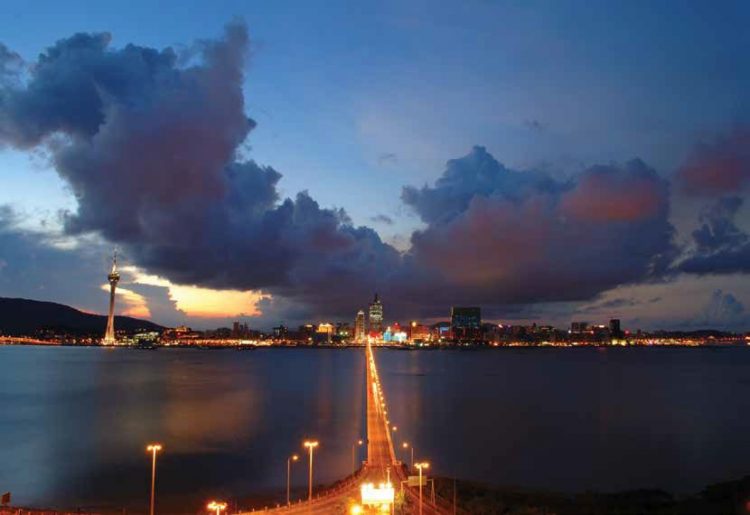

-120x86.jpg)





















